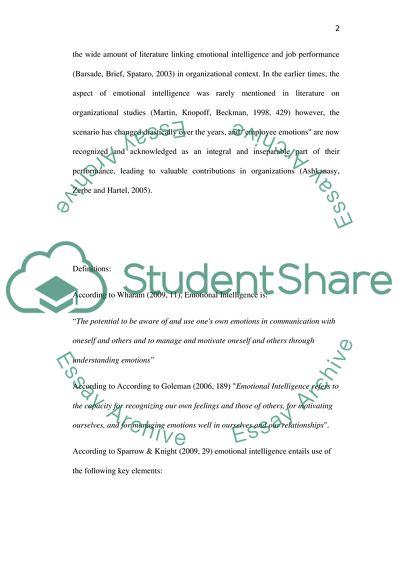Cite this document
(Relationship between Emotional Intelligence and Employee Performance Literature review - 1, n.d.)
Relationship between Emotional Intelligence and Employee Performance Literature review - 1. Retrieved from https://studentshare.org/human-resources/1751382-organisation-behavior
Relationship between Emotional Intelligence and Employee Performance Literature review - 1. Retrieved from https://studentshare.org/human-resources/1751382-organisation-behavior
(Relationship Between Emotional Intelligence and Employee Performance Literature Review - 1)
Relationship Between Emotional Intelligence and Employee Performance Literature Review - 1. https://studentshare.org/human-resources/1751382-organisation-behavior.
Relationship Between Emotional Intelligence and Employee Performance Literature Review - 1. https://studentshare.org/human-resources/1751382-organisation-behavior.
“Relationship Between Emotional Intelligence and Employee Performance Literature Review - 1”. https://studentshare.org/human-resources/1751382-organisation-behavior.


